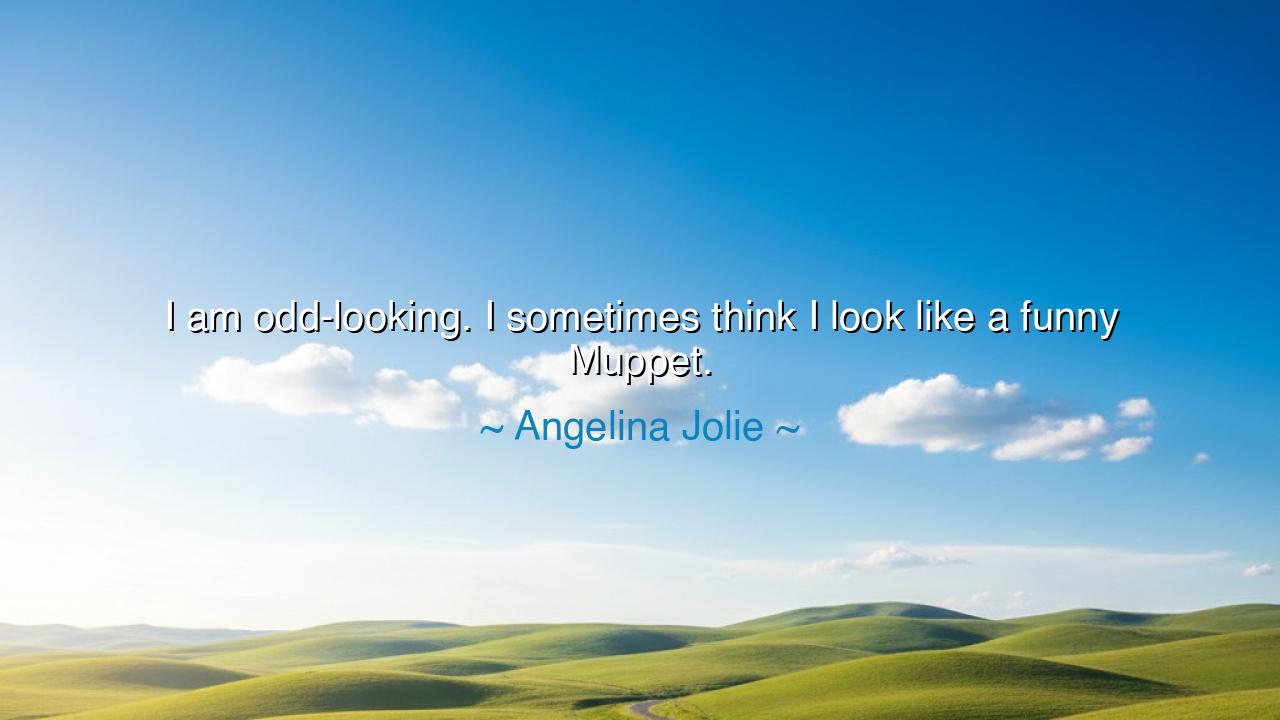
I am odd-looking. I sometimes think I look like a funny Muppet.






“I am odd-looking. I sometimes think I look like a funny Muppet.” — so spoke Angelina Jolie, a woman the world has long crowned as one of beauty’s sovereigns. Yet beneath her fame, her grace, and her fierce spirit, she uttered this truth with disarming humility. These words are not a jest; they are a confession of the heart — a reminder that even those who seem radiant to all eyes still battle the shadows of self-perception. They speak to the eternal struggle between how we are seen and how we see ourselves.
In the ancient days, when poets carved wisdom into the bones of language, they knew that beauty is both a blessing and a burden. Helen of Troy, whose face “launched a thousand ships,” was worshipped for her radiance — yet she lived surrounded by ruin, her beauty the spark of war. So too, Jolie’s words remind us that outer appearance is a mirror easily distorted by the winds of thought. To feel “odd-looking” is not merely to doubt one’s features; it is to glimpse the frailty of human self-awareness — to see that even the admired may feel alien within their own skin.
The phrase “funny Muppet” glows with gentle irony. In those words, Jolie turns judgment into laughter — she wields humor as a sword against vanity and fear. The ancients would have understood this well, for laughter was once considered a divine medicine. The philosopher Democritus, known as “the laughing sage,” wandered through the world smiling at its folly. He saw that laughter could free the soul from the tyranny of self-seriousness. When Jolie calls herself a funny Muppet, she joins this lineage — not mocking herself, but reclaiming power through joy. It is the laughter of acceptance, not of defeat.
Indeed, to call oneself odd-looking and mean it with love is to rise above the illusion of perfection. The ancients believed that harmony does not come from symmetry alone but from character — from the union of one’s inner fire with one’s outer form. The sculptor Phidias, when shaping Athena, did not seek flawless smoothness; he sought presence, spirit, divinity within imperfection. So too must we learn to see beauty not as an image frozen in time, but as a living flame that burns uniquely in each being. Jolie’s “oddness” is her authenticity — and in truth, it is what makes her unforgettable.
Let us not forget that the world often crowns the mask before it honors the soul. The lesson of this quote is a rebellion against that deception. To embrace being odd, different, funny, or imperfect is to claim your humanity. In every wrinkle, in every freckle, in every quirk of face or form, there lies a story — a map of the roads you’ve walked. The ancients would have said, “The gods mark their favorites with distinction.” What you call odd, the heavens may call sacred.
Therefore, let this teaching be passed to all who seek peace within themselves: Do not worship the mirror. The mirror sees only the surface; it cannot read the poetry of your being. Instead, turn your gaze inward and ask, “Do I live with truth? Do I laugh without fear? Do I give love freely?” For beauty without warmth is ice, and perfection without spirit is hollow. The radiance that endures is not found in the symmetry of the face but in the courage of the heart.
And so, when you rise each morning, look upon your reflection with reverence, not judgment. If your hair is wild, smile at its rebellion. If your features seem strange, remember that the universe delights in variety. Say to yourself, “I, too, am odd-looking, and that is divine.” Wear your funny Muppet face with pride, for it is the vessel through which your soul speaks. In this way, you shall walk as the ancients walked — not chasing beauty, but embodying it, quietly, courageously, and without apology.






AAdministratorAdministrator
Welcome, honored guests. Please leave a comment, we will respond soon